18 Low Risk But Dangerous Conditions Associated with Obesity or Excessive Body Fat Individuals
Reviewed by: Dr. T S Deepthi Sarojini | Author: Manoja Kalakanti
Obesity is a condition in which an individual has excess body fat. It can be defined based on the BMI (Body Mass Index) score, according to which a person with a score of 30 or more is considered to be obese. The hip to waist ratio is also a factor that determines whether a person is obese or not. This condition can increase the risk of many low-risk to severe health complications such as heart disease, hypertension, and diabetes. In this article, we’ll talk about the 18 low-risk conditions associated with obesity. We will also look at some crucial diet tips that can help prevent it.
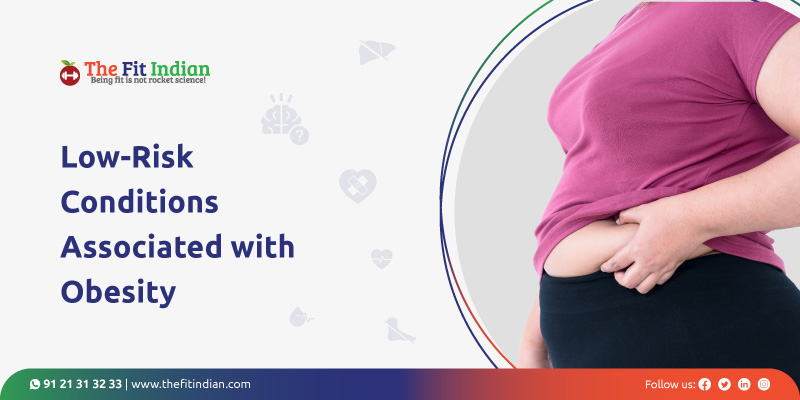
There are many factors responsible for causing a person to be overweight or obese. It could be genetic, psychological, lifestyle or even certain medications. With proper diagnosis and corrections in lifestyle, you can prevent the complications of obesity. Even the slightest reduction in weight can go a long way in helping you prevent complications. Below are the 18 conditions related to obesity.
Low-Risk Conditions of Obesity – Dos’ and Don’ts
There are many diseases caused by obesity that could result in severe health issues, low quality of life and may even lead to mortality. There are high-risk conditions such as heart problems, stroke, hypertension and diabetes. There are also many low-risk conditions related to being overweight.
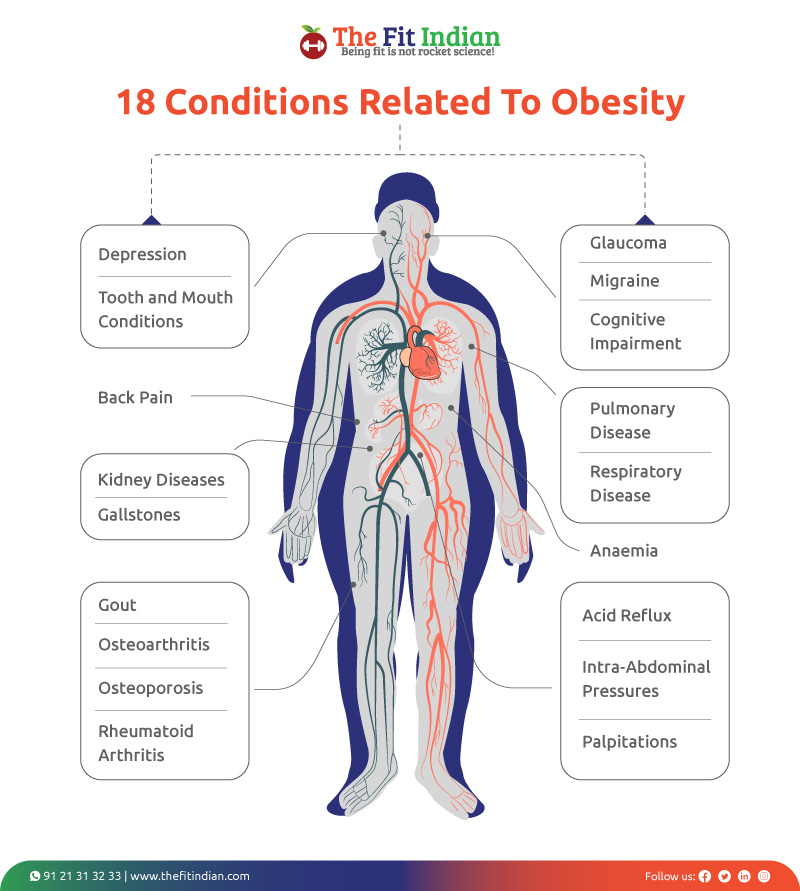
It is important to understand the risks of obesity to manage it properly. The following are some of the most common low-risk conditions associated with obesity.
1. Osteoarthritis
This is one of the most common medical conditions associated with obesity. The more you weigh, the higher would be the pressure on your knee joints.
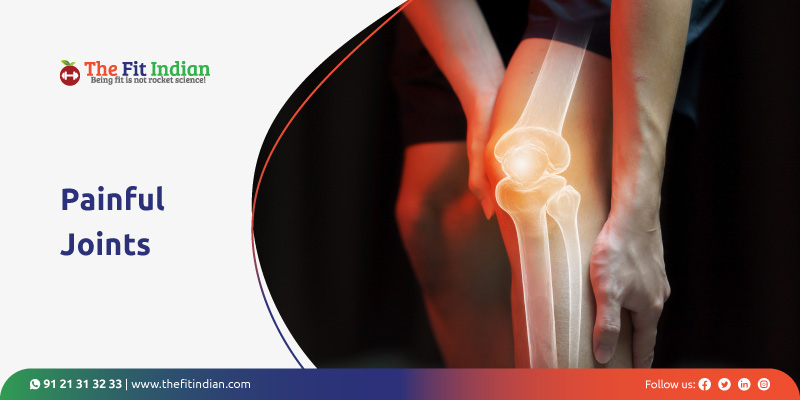
And if you already suffer from the condition, excess weight can worsen the pain. Even losing a few pounds could bring a lot of relief to patients.
Foods to eat:
- Oily fish
- Ginger and turmeric
- Vegetables and fruits
- Omega-3 fatty acids
Foods to avoid:
- Sugar
- Reduce salt intake
- Fried foods
2. Kidney Diseases
Being obese can significantly increase the risks of kidney diseases. Obesity can cause diabetes and high blood pressure, and these conditions can damage the blood vessels in the kidneys, causing kidney diseases.

The more weight you pile on, the more your kidneys have to work in order to filter the waste.
Foods to avoid:
- Excess potassium, sodium, phosphorus-rich foods
- Packed, instant, and pre-made meals
- Red and processed meat
- Canned foods
- Whole wheat bread
- Dairy products
Foods to eat:
- Rich in vitamin C, vitamin K, vitamin B
- Folates like olive oil, cauliflower, garlic, and egg whites
- Virgin and extra-virgin olive oil
3. Depression
Depression and anxiety are linked to overeating, an unhealthy diet and a sedentary lifestyle. This may lead to obesity. Medications to treat the condition may also cause weight gain. People diagnosed with depression are more likely to be obese than those who haven’t. Being obese could also lead to anxiety, stress and depression.
4. Gallstones
People who are overweight or obese are more likely to develop gallstones.
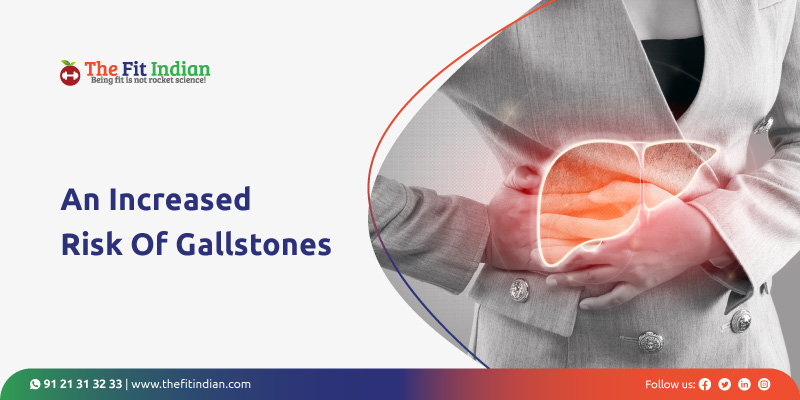
This occurs because individuals who are overweight tend to have high cholesterol in their bile, which can cause gallstones.
Foods to avoid:
- Fatty meats
- Proteins
- Oil packed fish
- High-fat dairy
- Avocado
- Butter
- Sugary desserts
Foods to eat:
- Lethicin
- Fibre
- Rich in vitamin C
- Artichoke
- Apple
- Radish
5. Osteoporosis
Obesity leads to osteoporosis, which is a condition that weakens the bones, making them prone to fractures. While it was earlier believed that osteoporosis may protect the bones, recent studies have shown that overweight people may carry fat inside their bones. This makes them more susceptible to fractures.
Foods to avoid:
- Alcohol
Foods to eat:
- Dairy products
- Low fat and nonfat milk
- Cheese
- Yoghurt
- Fish
- Canned sardines and salmon
- Fatty variety fishes like tuna, mackerel
- Fruits and vegetables
- Green beans, peas, spinach, tomato, dark green vegetables
6. Gout
A gout is a form of arthritis that can affect your joints, especially your toes. This can lead to inflammation and be intensely painful. It is caused due to the accumulation of sharp urate acid crystals in your joints.
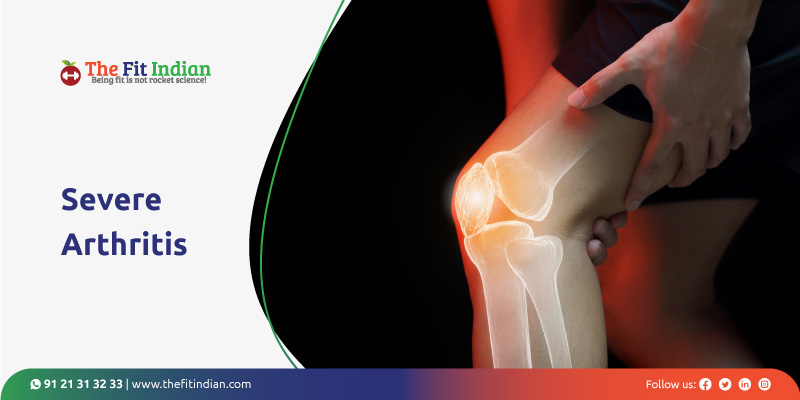
Usually, uric acid is eliminated through the kidneys. But when you are overweight, the body produces more uric acid, and the kidneys are under more pressure, thus resulting in an excess build-up of uric acid.
Foods to avoid: (Avoid high fructose foods)
- Meat
- Fish
- Other sugary products
- Other seafoods
- Yeast
Foods to eat: (Low purine foods)
- Fruits and vegetables
- Whole grains
- Low-fat dairy products
- Eggs
- Beverages
- High-vitamin C foods
7. Tooth and Mouth Conditions
People with obesity tend to consume food rich in fat, sugar, carbohydrates and calories. These foods can damage the tooth enamel, cause gum diseases and bad breath.
Foods to avoid:
- Sugary Candies
- Bread
- Alcohol
- Carbonated drinks
- Fried chips
Foods to eat:
- Milk
- Yoghurt
- Cheese
- Celery
- Sugar-free gum candies
- Some herbs
8. Rheumatoid Arthritis
One of the side effects of being overweight, obesity can worsen the symptoms of rheumatoid arthritis. Most people who have rheumatoid arthritis are overweight or obese.
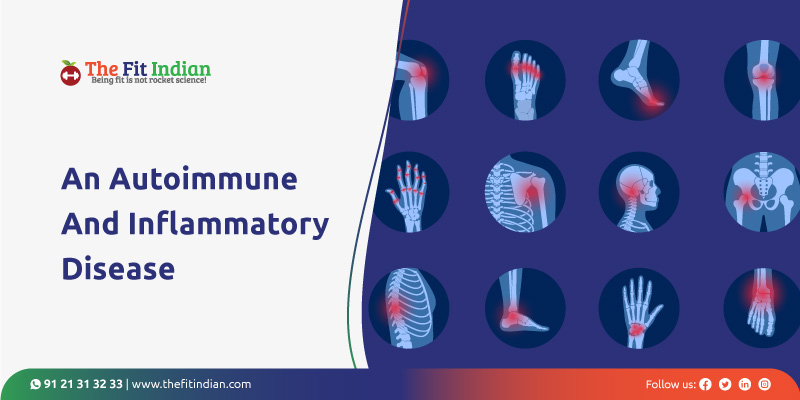
The more the weight increases, the more difficult it is to manage the condition, and the less effective medicines are.
Foods to avoid:
- Red meat, refined grains, dairy products, saturated fats worsen Inflammation
- Omega-6 fatty acids
- Gluten
- MSG (monosodium glutamate)
- Alcohol
- More salt consumption
Foods to eat:
- Fish oils and plant oils, e.g., olive and coconut oil, reduce arthritis
- Leafy vegetables, aloe vera, ginger and turmeric have anti-inflammatory agents
- Whole-grain cereals
9. Back pain
People who are overweight or obese are at a higher risk of experiencing back pain. The extra weight, especially around the midsection, puts immense strain on the lower back.
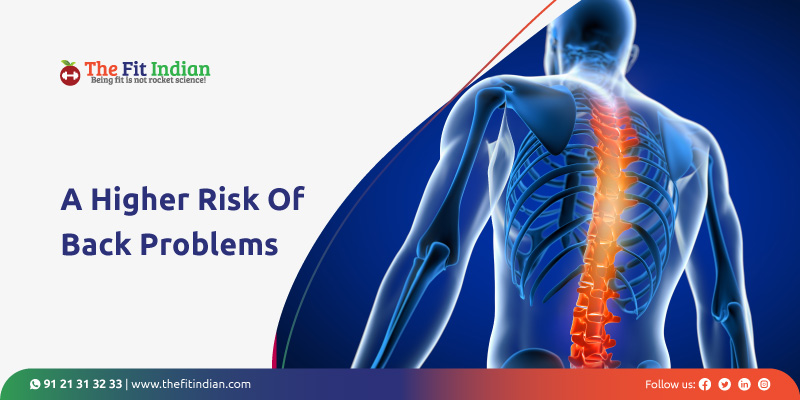
The pressure put by excess weight pulls the pelvis forward, causing stress on the back. This pressure damages the discs and other spinal structures.
Foods to avoid:
- Processed carbohydrates like breakfast cereals, white bread, white pasta, snack foods like chips and crackers, baked goods, pastries, ice cream
- Sugar-sweetened beverages
- Fried foods
- Unhealthy cooking oils – corn, soya, sunflower, safflower
Foods to eat: (Anti-inflammatory diet is good for back pain)
- Seafood – tuna, salmon, mackerel, sardines, anchovies, shellfish
- Fruits (focusing on blueberries, strawberries and raspberries)
- Dark leafy vegetables
- Legumes/pulses
- Nuts and seeds
- Olives and olive oil
- Herbs and spices (ginger, turmeric, garlic, oregano, cinnamon, rosemary, cloves)
10. Glaucoma
Obesity causes several eye problems, including glaucoma. In this condition, there is extreme pressure inside the eyes, known as intraocular pressure.
Foods to avoid:
- Foods with trans fatty acids like cookies, cakes and French fries
- Foods with high saturated fats like full-fat meat (beef)
- Foods with caffeine, like coffee
- Alcohol
Foods to eat:
- Iron-rich foods such as spinach
- Vitamin A-rich foods such as sweet potatoes, carrots, mangoes and milk
- Protein-rich foods such as eggs, milk
- Zinc-rich foods such as green peas, eggs, wheat germ, chickpeas, oyster, red meat, poultry and certain seafood
- Foods rich in vitamin C like green pepper, citrus fruits and tomatoes
11. Intra-Abdominal Pressures
The pressure in the abdomen resulting from the interaction of the abdominal wall and the organs are known as intra-abdominal pressure. This is considered to be responsible for mortality in people with obesity. Consistent pressure is also associated with renal failure.
Foods to avoid:
- High fatty foods
- Less consumption of sodium
- Alcohol and smoking
- Stress and anxiety
Do’s:
- Maintain healthy weight
- Maintain energy input calorie = energy output
- Monitor your BMI (Body mass index)
- Maintain blood pressure values
- Consume low-fat dairy products
12. Anaemia
Anaemia is commonly found in people who are overweight. It is a result of low dietary iron absorption.

It could also result from adiposity-related inflammation that increases serum hepcidin.
Food to avoid:
- Foods containing tannins like coffee, grapes and wine
- Sorghum
- Corn
- Chocolate
Foods to eat:
- Iron-rich foods such as dry fruits like raisins and apricots; green leafy vegetables
- Vitamin B12–rich foods such as red meat and seafood
- Folic acid rich foods such as orange, broccoli, chicken breast and lemon
13. Acid Reflux
Being overweight or obese is considered one of the leading risk factors of acid reflux or GERD. It can not only cause acid reflux but also increase the severity if you already suffer from the condition. The excess weight or fat around the belly puts pressure on the abdomen, resulting in stomach acids travelling towards the oesophagus.
Foods to avoid:
- Spicy foods
- Fatty foods
- Onion
- Garlic
- Chocolates
- Alcohol
- Caffeine
- Carbonated drinks
Foods to eat:
- Healthy fats
- Ginger
- Yoghurt
- Nuts and seeds
- Lean protein
14. Palpitations
Palpitations are the sensation that the heart is beating fast and pounding. Certain medicines, health conditions, stress or exercise, can cause this feeling. Obesity is another factor that is associated with this sensation. People who are overweight are far more likely to experience this than those who aren’t. Obesity can cause diseases such as diabetes and heart problems, which are associated with heart palpitations. It can also increase the size of the heart chambers.
Foods to avoid:
- Chocolates
- Sodium
- Excess coffee consumption
- Carbonated beverages
- Sugar consumption
- High levels of MSG (monosodium glutamate)
- Smoking
Foods to eat:
- Hydrating food
- Healthy weight-promoting food
- Magnesium foods – oatmeal, bananas, peanut butter, avocados, and low-fat yoghurt
- Chamomile tea
- Honey with lemon
15. Pulmonary diseases
Obesity is one of the leading risk factors for pulmonary disorders. Excess weight can put immense strain on the diaphragm, chest cavity, and lungs, leading to pulmonary damage.
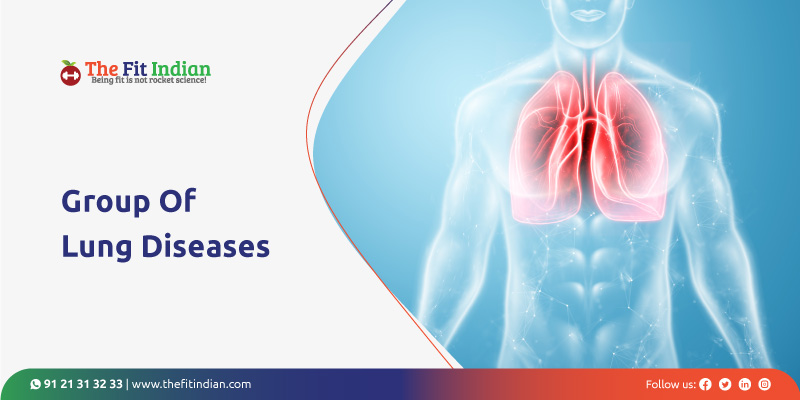
Obesity also causes a slew of other respiratory problems such as sleep apnea and asthma.
Foods to avoid:
- Eggs
- Peanuts
- Salt
- Shellfish
- Wine
Foods to eat:
- Beet and beet greens
- Peppers
- Apples
- Turmeric
- Yoghurt
- Brazil nuts
16. Respiratory Disease
Respiratory problems are more common in people who are obese. Conditions such as obstructive sleep apnea, hypoventilation syndrome and asthma can occur in people who are overweight.
If you already suffer from such respiratory disorders, being obese will make it more challenging to manage them. A loss of weight can bring significant relief. The combination of
obesity and respiratory disorders can result in the development of severe symptoms in COVID-19 patients.
Foods to avoid:
- MSG salt
- Saturated fats
- Sugary products
Foods to eat:
- High-quality protein
- Cereals and whole grains
- Vegetables and fruits
17. Memory and Cognitive Function
Obesity and metabolic disorders are linked to cognitive decline and dementia.

Studies have shown that abdominal obesity increases the risk of loss of cognitive functions.
Foods to avoid:
- High in fructose
- Corn syrup
- Trans fats
Foods to eat:
- Coffee
- Fruits
- Turmeric
- Magnesium-rich foods – oatmeal, bananas, peanut butter, avocados, and low-fat yoghurt.
- Fatty fish
- Pumpkin seeds
- Dark chocolates
18. Migraine
Several studies suggest the direct link between obesity and migraine. Obesity can cause migraine and also increases the severity in people who already suffer from the condition. Being overweight may also increase the frequency of migraines.
Foods to avoid:
- Deep-fried foods
- Saturated and trans fats
- Alcohol and smoking
Foods to eat:
- Rich in omega-3 fatty foods
- Fibre-rich
- Fruits and vegetables
These are some of the disadvantages of obesity for our health. Several high-risk conditions can manifest if obesity is not properly managed. The following diet tips can help counter and even reverse some of the adverse effects of obesity.
Diet Tips to Prevent Obesity
Your diet plays a crucial role in preventing the complications or side effects of obesity. The smallest changes in your dietary habits can play a positive role in the management of obesity. Read the label before you purchase any product, avoid alcohol and smoking, balance your calorie intake, limit sodium intake, and control cravings.
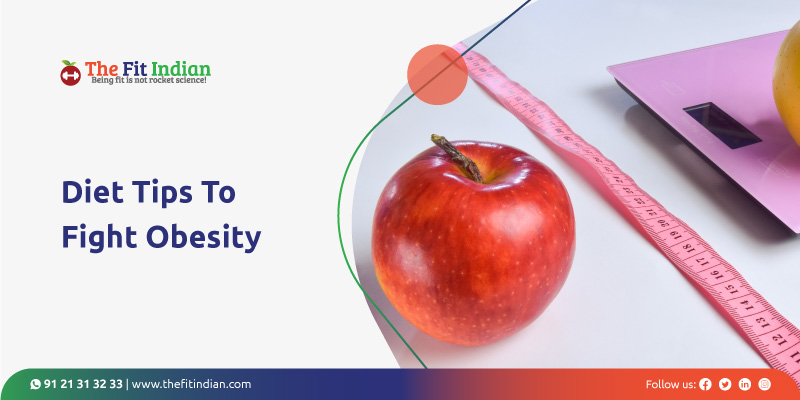
These are just some of the few essential dietary tips. Follow the diet tips specific for each condition as shown above. Diet changes alone will not be that effective unless you make lifestyle changes. Take a look at some lifestyle tips to manage weight.
How to Prevent Obesity Through Lifestyle Changes
Your lifestyle can make or break your obesity-management efforts. A regular exercise regimen can help you overcome low libido issues, encourage good cardiac functioning, lower blood pressure, and reduce abdominal fat. Follow these lifestyle tips to control obesity:
- Follow a healthy diet
- Get enough sleep
- Assess your weight
- Exercise daily
- Engage in regular aerobic activity
For more information about obesity and its preventive measures through diet or lifestyle modifications, consult your doctor. You can also consult a nutritionist for a customized diet plan.
Bottomline
There are many obesity-related diseases that can cause severe damage to your health. While some of these conditions can result from being overweight, others may be risk factors that lead to the development of the condition. With proper care, these complications can be avoided. Get a doctor’s advice on the preventive steps needed to steer clear of these health problems associated with obesity.
FAQ’s
1. What are the risk factors for obesity?
A sedentary lifestyle, stress, unhealthy dietary habits, genetics and certain medications are some of the risk factors of obesity.
2. What causes obesity?
There are many factors responsible for the condition. Lack of physical activity, western diet, increasing urbanization, hereditary predisposition and more.
3. What problems can being overweight cause?
Being overweight can cause high blood pressure, breathing problems, joint pains in the knees or lower back, fatigue, varicose veins, nervous system diseases and other health problems.
4. How dangerous is obesity?
If poorly managed, obesity is highly dangerous for your health. Over time it could lead to several mental and physical disorders that could even cause death.
5. What leads to obesity?
Junk food, hormonal imbalance, psychological factors like stress or anger, socio-economic status, a diet high in fats and sugar and pregnancy are some of the factors that lead to obesity.
6. How does obesity affect the body?
Obesity may result in a flat foot, snoring, binge eating, pot belly, low-risk conditions such as migraine, anaemia and high-risk conditions such as strokes and diabetes.
7. Why is obesity bad for your health?
Obesity can result in a series of low-risk and high-risk health problems such as acidic reflux, kidney diseases, osteoarthritis, heart diseases, and hypertension.
8. Why does obesity increase the risk for diabetes?
The higher amount of fatty acids and inflammation due to obesity leads to insulin resistance. This, in turn, leads to type 2 diabetes.
9. How often does obesity occur?
According to the WHO (World Health Organisation), globally, more people are obese than underweight. The prevalence of obesity is increasing, including the cases of childhood obesity.
10. Are there any health risks associated with obesity?
Yes. There are several low-risk and high-risk conditions associated with obesity. Gallstones, hernia, dyslipidemia, phlebitis, cancer, depression and foot problems are just a few of these health risks.




Manoja Kalakanti